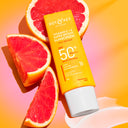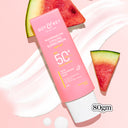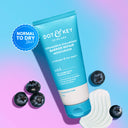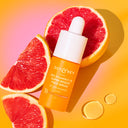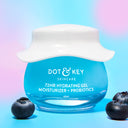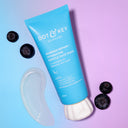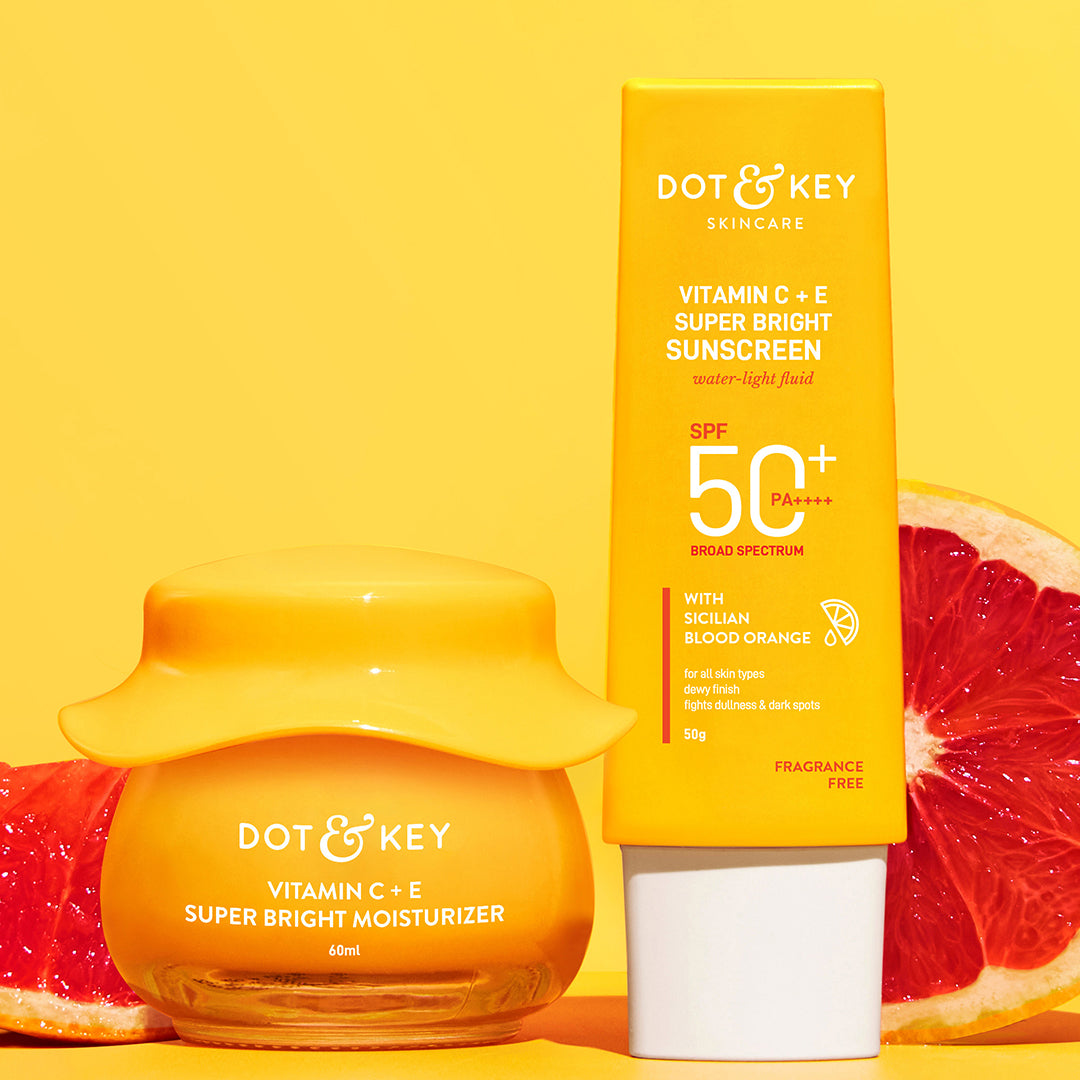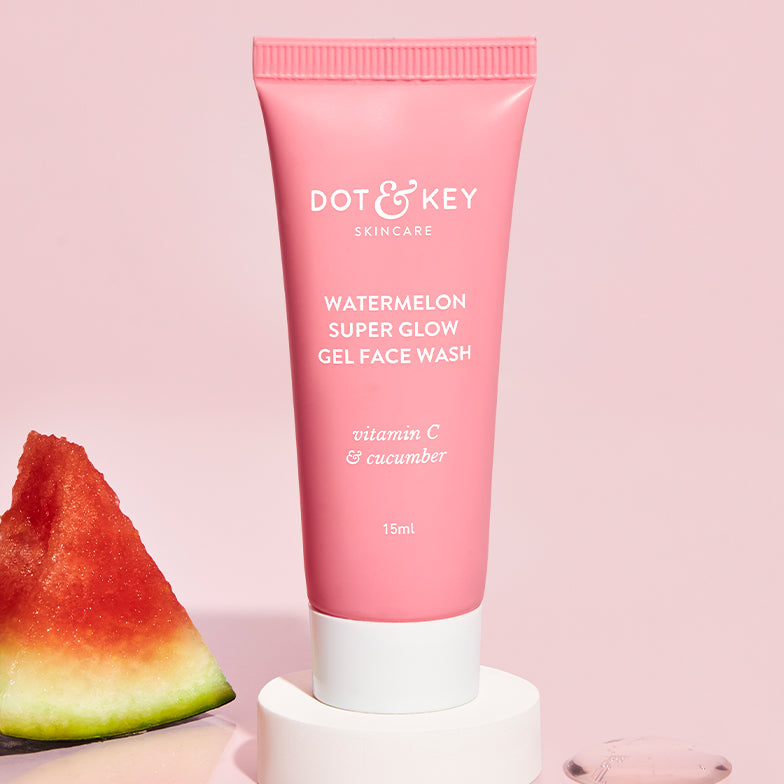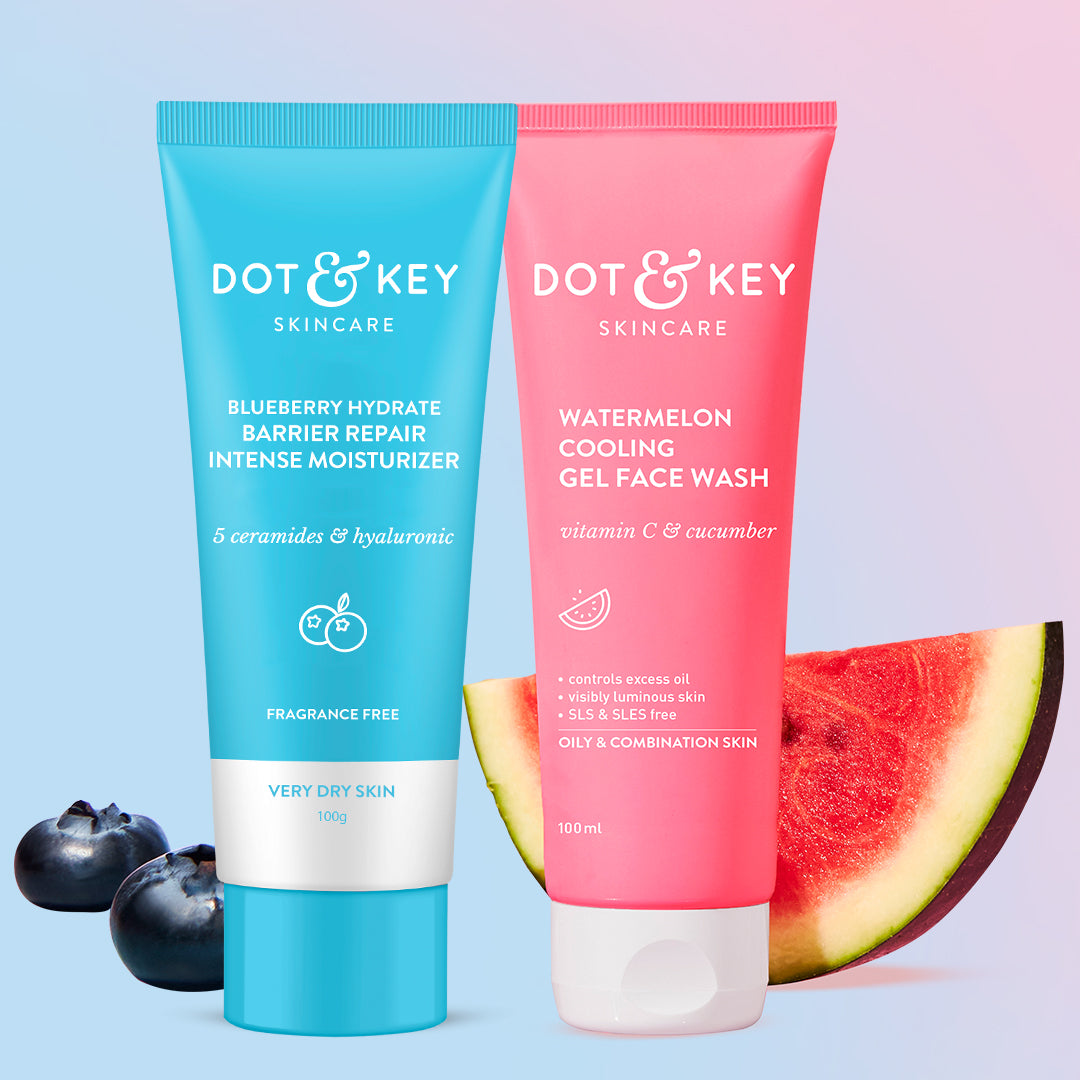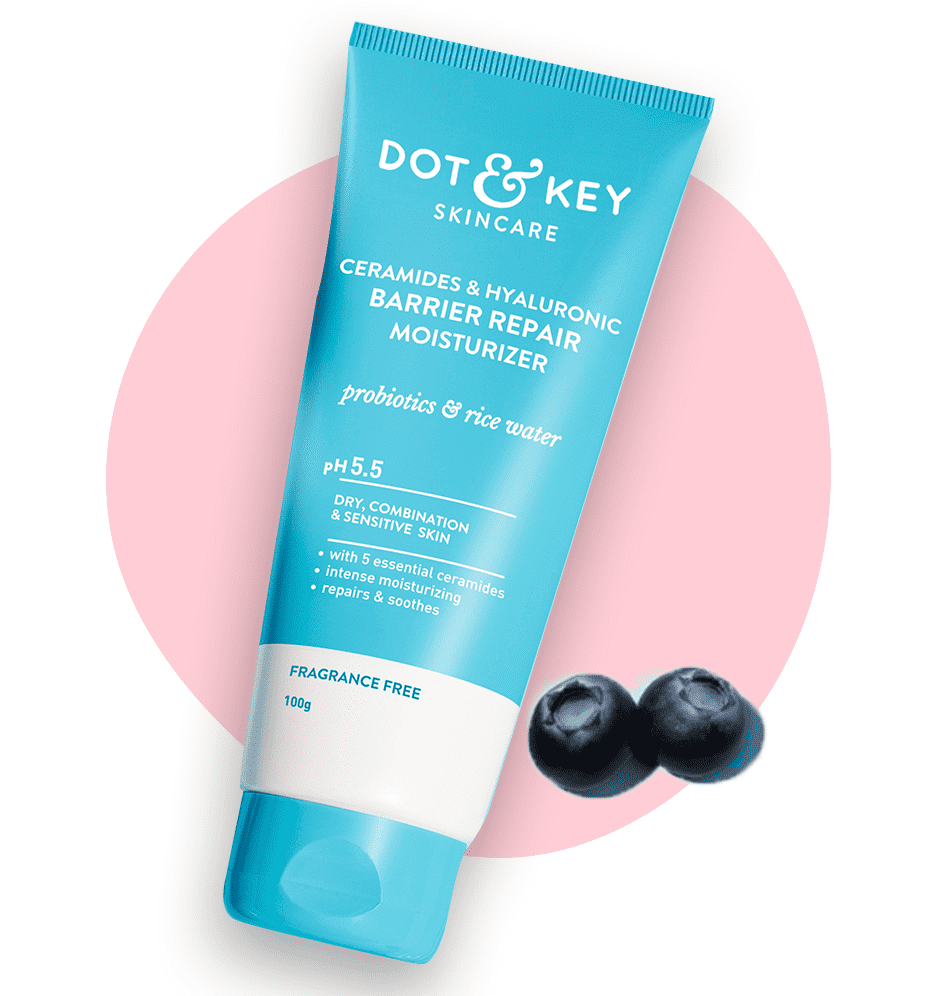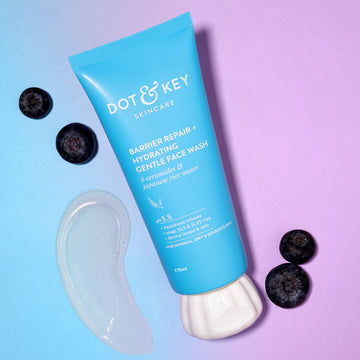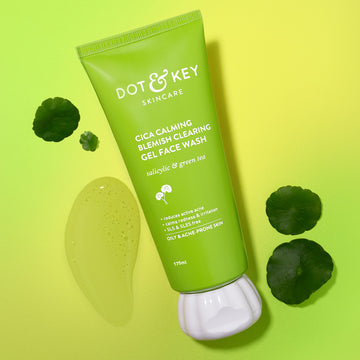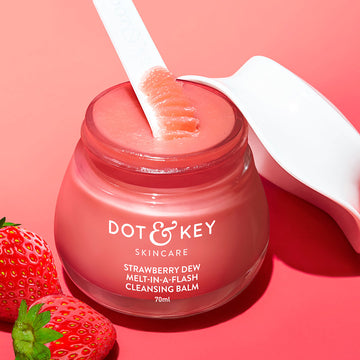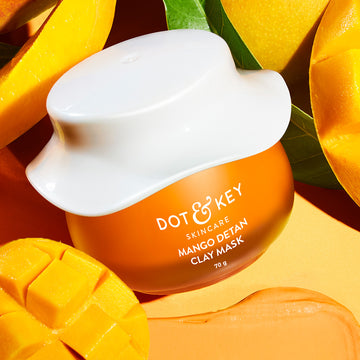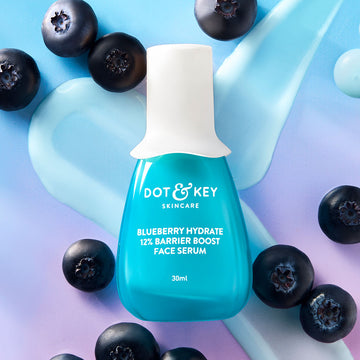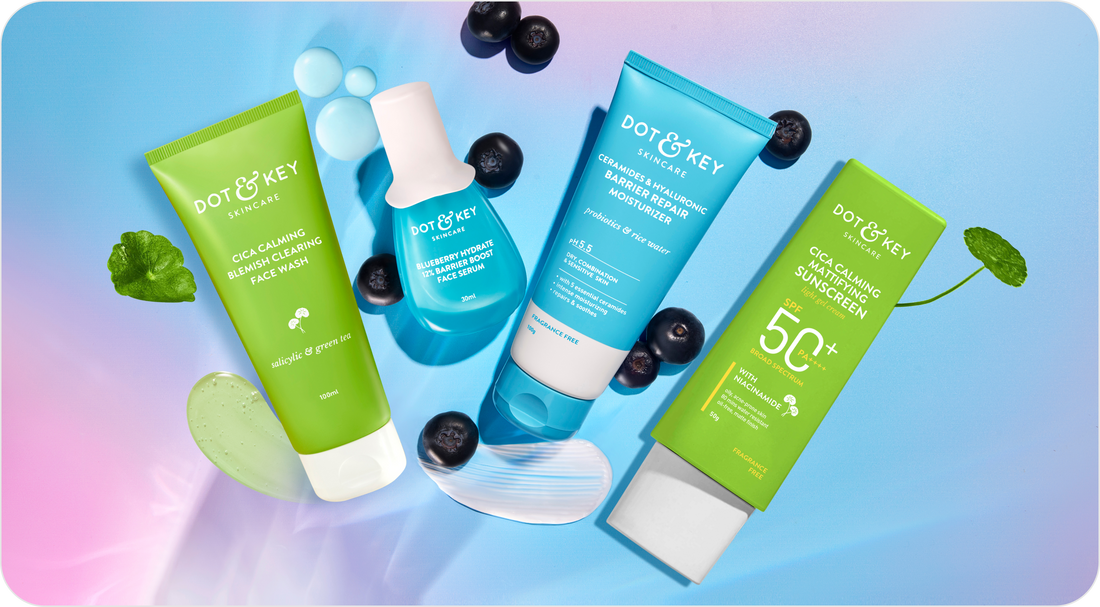
Winter can be tough on sensitive skin—the chill in the air, biting winds, and cozy indoor heating all strip away moisture, leaving your skin prone to redness, irritation, and discomfort. For those with sensitive skin, it's crucial to follow a skincare routine that's gentle and effective in protecting your skin from these harsh winter elements. In this blog, we'll dive into the causes behind sensitive skin and walk you through a step-by-step winter skincare routine to keep your skin calm, deeply hydrated, and glowing throughout the season. Let's ensure your skin stays healthy and protected, no matter the weather!
What Causes Sensitive Skin?
Sensitive skin is more reactive to environmental factors and skincare products, often feeling tight, itchy, or uncomfortable. It’s also prone to redness and irritation. Understanding the key causes of sensitive skin is essential for managing it more effectively.
Key Causes of Sensitive Skin:
- Weak Skin Barrier: A compromised skin barrier is one of the leading causes of sensitive skin. When the skin’s barrier is weak or damaged, irritants, allergens, and bacteria can easily penetrate, leading to redness, itching, and irritation. Research published in the Journal of Clinical and Aesthetic Dermatology highlights that a weak barrier is often the root cause of sensitivity.
- Environmental Factors: Winter weather can be particularly harsh on sensitive skin. Cold air, low humidity, and indoor heating contribute to moisture loss, leaving skin vulnerable to irritation. Studies confirm that drastic weather changes are one of the major triggers for flare-ups in sensitive skin.
- Harsh Skincare Products: Certain skincare products—especially those containing alcohol, fragrances, and sulfates—can disrupt the skin’s natural pH balance and weaken its barrier. This makes sensitive skin more prone to irritation. Always check ingredients to ensure they’re gentle on your skin.
- Genetics: Sensitive skin can often be inherited. If your parents or close relatives have sensitive skin, there's a good chance you might too. Research published in Dermatologic Clinics suggests that genetic factors play a significant role in affecting your skin’s ability to retain moisture and defend against irritants.
- Stress and Hormonal Changes: Emotional stress and hormonal fluctuations can also make your skin more reactive. Increased cortisol levels from stress can cause inflammation, while hormonal changes during pregnancy, menopause, or menstruation may heighten skin sensitivity.
Step-by-Step Winter Skin Care Routine for Sensitive Skin
Now that we’ve discussed the causes of sensitive skin, let’s get into a simple, yet effective, winter skincare routine that can keep your skin calm, hydrated, and protected from the harsh winter elements.
Step 1: Cleanser (AM & PM)
Cleansing is the foundation of any skincare routine, as it helps remove dirt, oil, and impurities. However, for sensitive skin, it’s crucial to choose a cleanser that’s gentle and won’t strip away your skin’s natural moisture. Opt for a sulfate-free, hydrating cleanser enriched with soothing ingredients like cica, ceramides or Japanese rice water. These calming ingredients help reduce inflammation and maintain the integrity of your skin’s protective barrier.
How to Do It:
- AM: Start your day with a gentle, hydrating cleanser that’ll remove any oil or impurities accumulated overnight—without causing irritation.
- PM: Cleanse again at night to remove makeup, dirt, and environmental pollutants that could make your skin more sensitive. A two-step cleanse using a double cleansing method gives you that deep-down clean without over-drying or irritating your skin.
How to Double Cleanse:
- Step 1: Begin with a cleansing balm like Dot & Key’s Strawberry Dew Cleansing Balm to melt away stubborn makeup, sunscreen, and any impurities. This first cleanse softens the skin without disrupting your moisture balance.
- Step 2: Follow Up with a mild cleanser infused with Cica or salicylic acid crafted for sensitive skin that gently cleanses away excess oil & dirt & every last trace of makeup without stripping the skin’s natural moisture or causing irritation.
Pro Tip: Avoid cleansers that contain alcohol or sulfates, as these can dry out and aggravate sensitive skin, leaving it more vulnerable to redness and discomfort.
Step 2: Exfoliation (PM: 1-2 times a week)
Exfoliating helps remove dead skin cells that can build up and make sensitive skin appear dull or flaky. However, over-exfoliating can damage the skin’s barrier, leading to increased sensitivity. Use a gentle exfoliant like lactic acid or a mild enzyme exfoliant once or twice a week to keep your skin smooth without causing irritation.
How to Do It:
- At night, after cleansing, apply a gentle exfoliant once or twice a week. Avoid scrubbing too hard, and focus on areas that feel rough or flaky
- Rinse with lukewarm water and pat your skin dry.
Pro Tip: Avoid physical scrubs with rough particles, as they can cause micro-tears in the skin and lead to more irritation.
Step 3: Toner (AM & PM)
A good toner balances your skin’s pH and provides a refreshing layer of hydration. For sensitive skin, choose an alcohol-free, soothing toner with calming ingredients like cica, Japanese rice water or hyaluronic acid. These ingredients not only hydrate but also help reduce inflammation, making your skin feel soft and ready for the next steps in your routine.
How to Do It:
- In the morning: After cleansing, apply a hydrating toner using a cotton pad or your hands to give your skin a soothing moisture boost.
- At night: Use the toner again after cleansing to calm and hydrate your skin, preparing it for serums and moisturizers.
Pro Tip: Always pat the toner onto your skin gently instead of rubbing. This minimizes friction and prevents irritation for sensitive skin.
Step 4: Serum (AM & PM)
Serums are packed with active ingredients that target specific skin concerns, making them a powerful addition to any skincare routine. For sensitive skin, look for hydrating serums containing ingredients like hyaluronic acid, salicylic acid or niacinamide, especially during winter. These ingredients not only help restore moisture but also work to strengthen the skin barrier without causing irritation. Niacinamide, in particular, is known for its ability to reduce inflammation and redness, as highlighted in studies published in The Journal of Cosmetic Dermatology.
How to Do It:
- In the morning: Apply a hydrating serum like Dot & Key’s 12% Barrier Boost Serum, infused with hyaluronic acid, ceramides, and niacinamide. It locks in moisture, repairs your skin’s barrier, and keeps your skin calm and plump throughout the day.
- At night: Use a soothing serum with cica, niacinamide, or ceramides. It calms and soothes the skin, treats dark spots or acne spots, and repairs damaged skin while reducing inflammation and redness caused by environmental stressors.
Pro Tip: Choose fragrance-free serums to avoid any unnecessary irritation. This ensures your skin gets all the soothing benefits without the risk of added sensitivity.
Step 5: Moisturizer (AM & PM)
Moisturizing is key to locking in hydration and protecting your skin’s barrier, especially during the winter months. For sensitive skin, opt for a rich, fragrance-free moisturizer containing ingredients like ceramides, hyaluronic or niacinamide. These ingredients work to restore the skin barrier and provide long-lasting hydration without causing irritation.
How to Do It:
- In the morning: Apply a hydrating moisturizer to lock in moisture and keep your skin soft and protected throughout the day.
- At night: Use a thicker, richer moisturizer to nourish and repair your skin while you sleep.
Pro Tip: For an extra boost of hydration, layer a few drops of facial oil over your moisturizer at night to seal in moisture and give your skin that extra glow.
Step 6: Sunscreen (AM)
Sunscreen is a must, even in winter, to protect your skin from UV damage. UV rays can worsen the sensitivity and contribute to premature ageing. For sensitive skin, opt for a mineral-based sunscreen with zinc oxide or titanium dioxide. These ingredients provide broad-spectrum protection by forming a physical barrier on the skin, reducing the risk of irritation compared to chemical sunscreens.
How to Do It:
- After moisturizing in the morning, apply a broad-spectrum sunscreen with at least SPF 30 to your face and neck.
- Reapply sunscreen using an easy-to-carry sunstick if you’re spending extended time outdoors, especially after sweating or wiping your face.
Pro Tip: Choose sunscreens enriched with hydrating ingredients like ceramides & hyaluronic. They add an extra layer of moisture while keeping your skin shielded from the sun.
Step 7: Eye Cream (PM)
The skin around your eyes is thinner and more delicate, making it particularly susceptible to dryness and irritation during winter. Using a hydrating eye cream at night can help nourish and protect this sensitive area, reducing the appearance of fine lines and puffiness.
How to Do It:
- After applying your night moisturizer, gently tap a small amount of eye cream around your eyes.
- Choose an eye cream with ingredients like hyaluronic acid for hydration or peptides to reduce puffiness and improve skin elasticity.
Pro Tip: Always use your ring finger to apply eye cream. It’s the gentlest finger, applying the least pressure on this delicate area, preventing unnecessary tugging or irritation.
Step 8: Lip Balm or Lip Mask
Your lips deserve a little nighttime TLC! End your routine with a rich lip balm or lip mask to deeply nourish and hydrate overnight. Look for ingredients like ceramides, peptides, shea butter, and avocado oil to restore moisture and repair any dryness or cracks while you sleep.
How to Do It:
- Apply a generous layer of lip balm or a specialized lip mask as the final step of your skincare routine for overnight hydration and repair.
Pro Tip: For an ultra-soft pout by morning, try a lip mask with intensive hydration benefits—it works wonders to plump and smooth your lips while you rest!
FAQs
What are the signs of sensitive skin in winter?
Sensitive skin in winter often feels tight and dry, showing redness or irritation, especially after exposure to cold or wind. It’s also more reactive to skincare products and sudden temperature changes.
How often should I exfoliate sensitive skin in winter?
Exfoliate gently, about once every two weeks. Use a mild, fragrance-free exfoliator to avoid irritation, and always follow up with a soothing moisturizer to restore hydration.
Can I use anti-ageing products on sensitive skin?
Yes, but opt for gentle, fragrance-free formulas with mild ingredients like peptides or hyaluronic acid. Avoid strong actives like retinol or AHAs unless they’re specifically designed for sensitive skin.
How do I choose the right moisturizer for sensitive skin in winter
Pick a rich, fragrance-free moisturizer with calming ingredients such as ceramides, glycerin, or oat extract. These ingredients help soothe irritation, strengthen the skin barrier, and provide long-lasting hydration.
Is sunscreen necessary for sensitive skin during winter?
Absolutely! Sunscreen is essential year-round. Choose a mineral-based, broad-spectrum SPF to protect your sensitive skin without causing irritation. Look for sunscreens with added hydrating ingredients for extra moisture.

